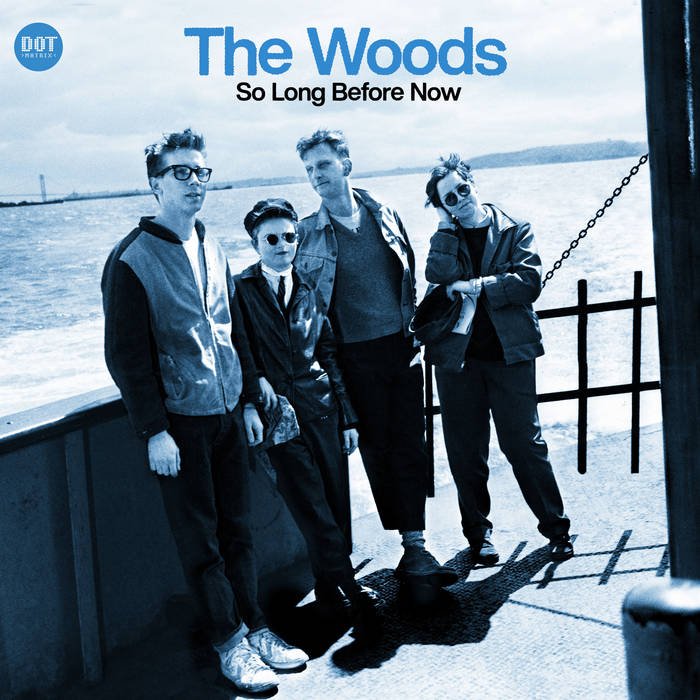by Zak Mercado (@ciaoguaglione)
So Long Before Now by The Woods is a charming artifact of 1980s underground culture and music. Only fully seeing the light of day just this year, the record feels remarkably contemporary. There’s something to be said about culture and styles repeating themselves, but there’s a special air to this record. It naturally fits in alongside many other excellent releases from this year. These recordings draw on influences from the Velvet Underground (particularly the records with John Cale), Fairport Convention, and possibly some of the contemporary music of their day — say the Cocteau Twins and Siouxsee and the Banshees. In all, an interest in British Folk music particularly shines through.
“Expect Miracles” opens with the chorus “I’m going to say my prayers/I’m going to ask a favor/I’m going to expect miracles tonight.” The listener begins thinking perhaps this is some Christian-tinged folk-pop, possibly in the style of Ocean or some Peter, Paul, and Mary. But it is not as optimistic or clean sounding as those bands are. It seems not-so-latently sarcastic and dark: “I’m going to close my eyes/I’m going to have this nightmare”. Instead, there’s a fascination and reverence to the style of their folk predecessors. The more secular (but nonetheless worshipful) of which is referenced via stacked vocal harmonies reminiscent of “Percy’s Song” by Fairport Convention.
“Never Before” reflects an interest in the droney, John Cale influenced, side of the Velvet Underground's first two records. “Any Second” is close to the new wave music many associate with the era, but maintains the folky interests of the whole record, particularly in the harmonized vocals. “The Real Miss Charlotte” seems to especially show the band’s awareness or interest in perhaps the Cocteau Twins, Siouxsee and the Banshees, or The Cure. The chorus guitar pedal likely gives it away. “Two By Two” has a hypnotic and gently lysergic sonic foundation, but it also feels like it could be made today, lyrically expressing progressive views on romance and sexuality that have always been mainstays in more lefty leaning subcultures (or maybe evincing a generally more open bygone era). “So Long Before Now” again reflects the era. It’s poppy and shows an understanding of the folk pop of the ‘60s, but also has speak-talking similar to the Velvets’ “Murder Mystery.”
“Love Me Again This Summer” feels naturally akin to songs written by many K Records artists. There’s the shared sunny and longing roots in the vocal performance and the rudimentary single guitar chord strum. The dynamics are superb and create a beautiful song. “Idea” shows the band has done their homework. They know the pop and rock n’ roll roots, the now old timey sounding girl pop groups. Even though the they seem to have an affinity for the gloomy and underground, this speaks to an education in the sunnier tunes.
Maybe the most singular of this batch of songs is “Two Houses.” The music is droning, then drops out, pared down, lyrically emphasizing humble aspirations, and then kicks back into the original theme: “I have seen the house that I will live in… someday I will live in that very fine house/and I will never again have to worry about money.” It speaks to the timeless plight of the (starving) artist or wannabe artist, in the tradition of La Boheme, Rent, Ethan Hawke’s Troy in Reality Bites, and/or actual folk and punk scenes. “He’s a good worker/when he works/he’s a hard worker/when he works hard/but he doesn’t work often/and he doesn’t have money/and his friends get mad/because he doesn’t have money.” The slacker lifestyle (or dream of the 90s, if you will) is honestly displayed as an internal struggle. There’s a balance between working to survive and working to create. When the artist seeks to throw herself fully into it, naysayers will judge. Putting creative aspirations above other work renders greater difficulty or desire in wanting other work. To any seeking to create art beyond mere doodling or noodling, it hits home, but that won’t stop any from dreaming and working toward their “success” or that “very fine house,” a decently noble aspiration. These lyrics are especially poignant in the context of this group creating truly transcendent music that never saw the light of day —that is, until now. There was and probably never will be any significant economic gain from this work. However, that does not mean it shouldn’t have been made. In reality, that makes it feel authentic, honest, and earnest. The work paid off. Each song on this record feels special, mature, and deeply rooted in knowledge of its musical predecessors.
Reflecting on the era in which these tunes were recorded, one can retrospectively assign this music’s place on the continuum of folk or pop or weirdo underground music. Listening to it elicits all sorts of signifiers and signifieds. Removing the critical glasses, it’s a deeply enjoyable listen. Just on a pure mood level, it generates this lovely slightly melancholic twee sound from which many can feel a deep connection and kinship. Great art, like this record, endures. May all that is hidden be brought to the light.

